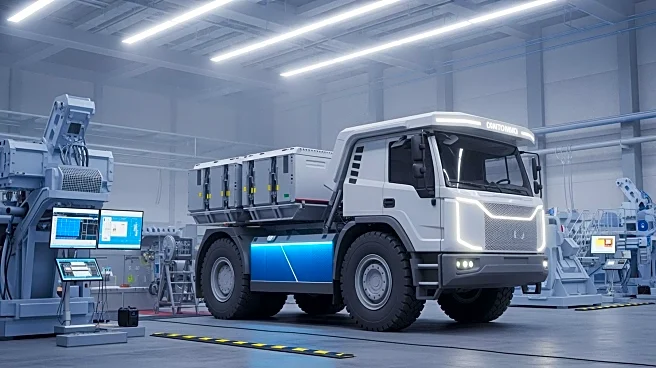What's Happening?
Rio Tinto, in collaboration with China's State Power Investment Corporation (SPIC) Qiyuan, is progressing with a trial of battery swap electric haul truck technology at the Oyu Tolgoi copper mine in Mongolia. This initiative marks Rio Tinto's first use
of such technology in surface mining operations, aiming to reduce emissions from mining haulage fleets, which are significant contributors to the company's carbon footprint. Over the past year, the companies have deployed a fleet of eight 91-ton Tonly trucks, equipped with 13 batteries, a battery swapping station, and supporting infrastructure. The trucks are being used for tasks such as tailings dam construction and topsoil transportation, providing Rio Tinto with practical experience in operating and maintaining a battery electric truck and swap charging system.
Why It's Important?
The trial is a significant step towards decarbonizing mining operations, aligning with global efforts to reduce carbon emissions. By adopting battery swap technology, Rio Tinto aims to minimize downtime and improve equipment efficiency, which could lead to cost savings and enhanced operational performance. The partnership with SPIC Qiyuan highlights the importance of international collaboration in advancing low-emission technologies. Successful implementation of this technology could set a precedent for other mining companies, potentially leading to widespread adoption and a substantial reduction in the industry's carbon footprint.
What's Next?
The equipment will be tested through the end of 2026, during which Rio Tinto will evaluate the feasibility of wider adoption of this technology across its global fleet. The company operates approximately 700 haul trucks, with about 100 being small or medium class vehicles, which could potentially utilize the current-generation battery swap technology. The outcomes of this trial could influence future investments and strategies in low-emission technologies within the mining sector.
















